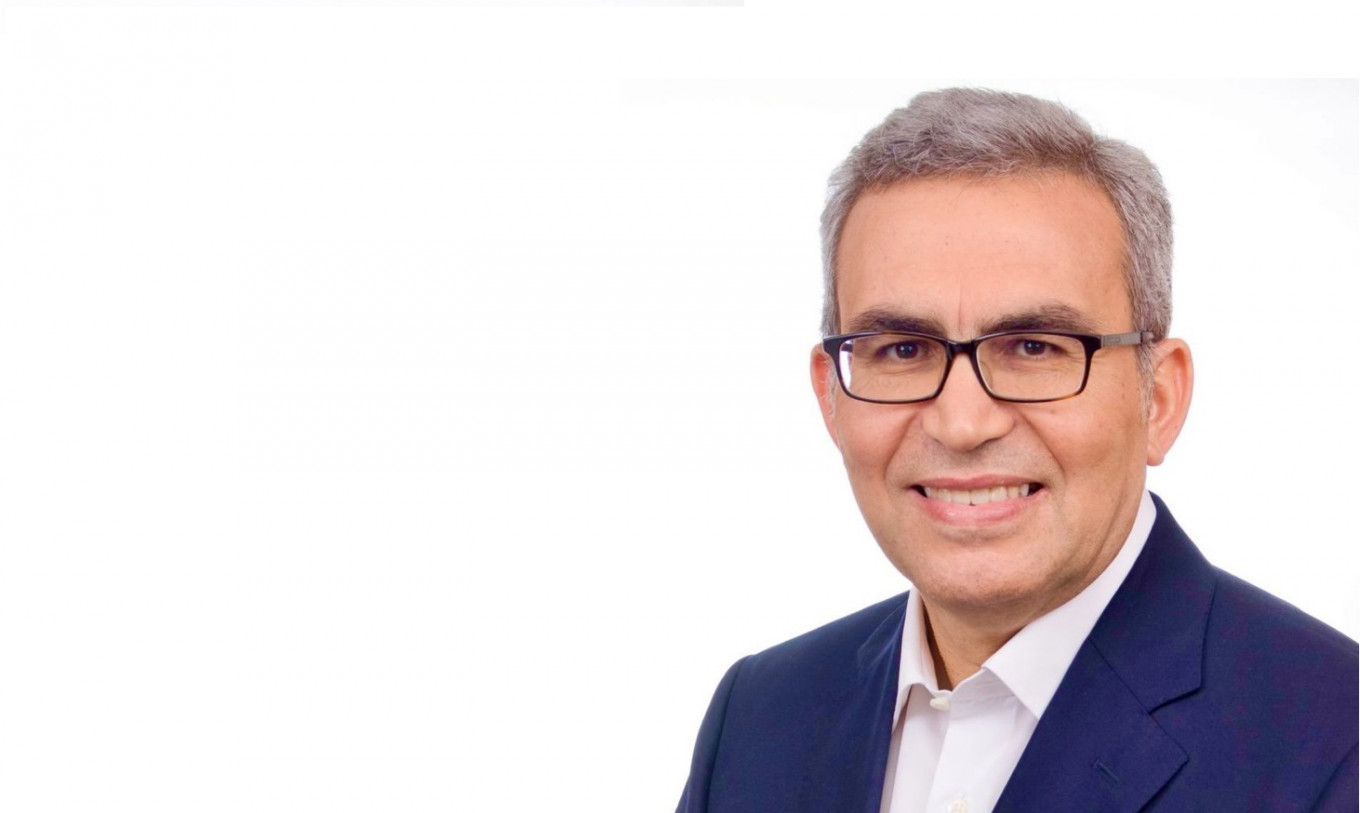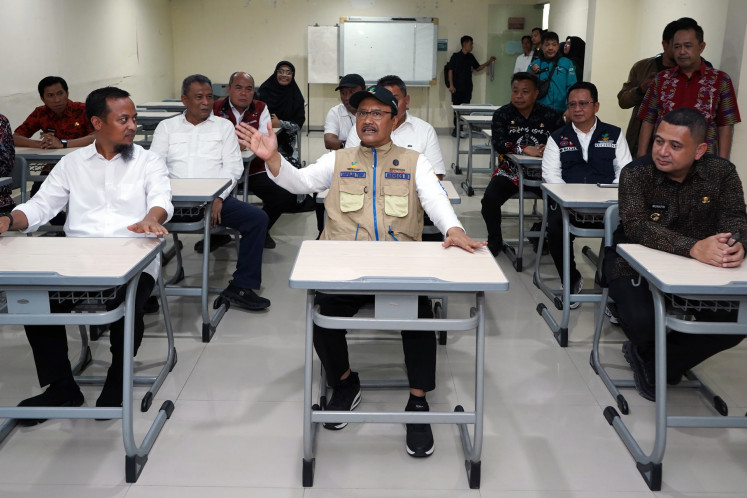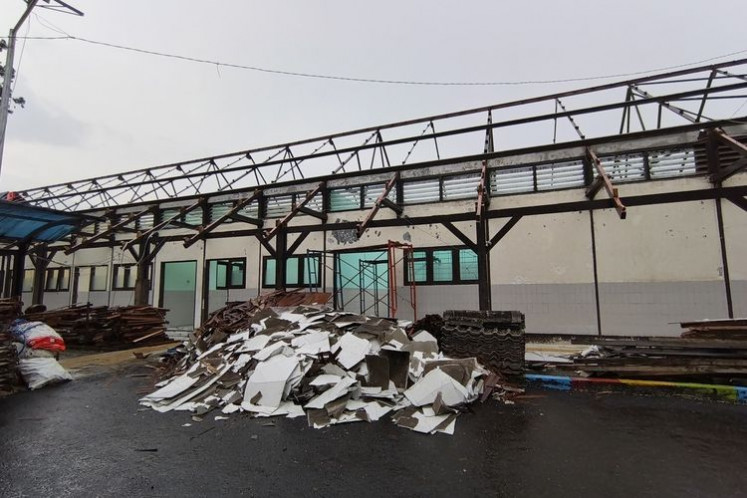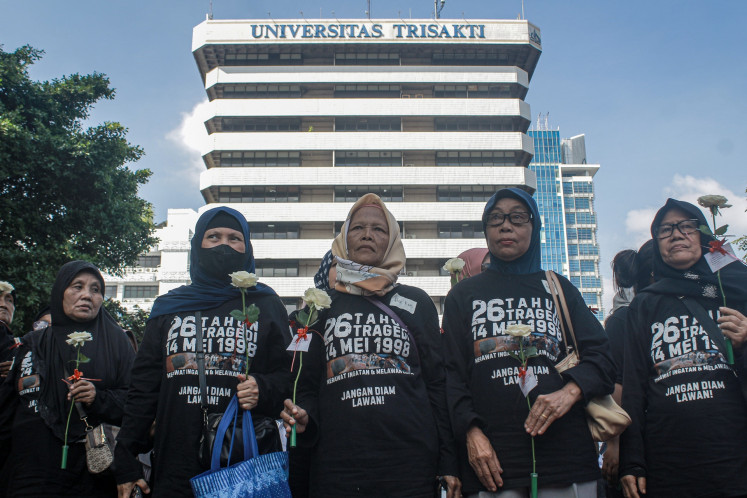Roche readies ‘huge innovation’ for RI’s healthcare resilience
Roche Indonesia president director Dr. Ait-Allah Mejri spoke with The Jakarta Post’ to discuss the company’s experience in accelerating innovation and the development, prospects and opportunities in Indonesia’s biopharmaceutical industry.
Change text size
Gift Premium Articles
to Anyone


The G20 Summit has put global health architecture in the spotlight to ensure the international community’s resilience in any future pandemic.
Regarding that, Roche Indonesia president director Dr. Ait-Allah Mejri spoke with The Jakarta Post’s Divya Karyza to discuss the company’s experience in accelerating innovation and the development, prospects and opportunities in the country’s biopharmaceutical industry.
Question: What measures should Indonesia implement to accelerate universal access to affordable and quality-healthcare services?
Answer: Indonesia has a clear transformation plan. We need to improve the standard of care, and we need to improve everything from the moment the patient is suspected to have a disease to the time he or she finishes the treatment. And I think what we need is to work together -- public sector, private sector, academia and all institutions -- to make a quantum leap. What we need is a qualitative shift in healthcare.
Healthcare today is not considered a development engine. It is still considered a social cost and we don’t see investment in healthcare. Stakeholders need to put in place mechanisms to allow patients to be diagnosed and treated earlier for all diseases.
To date, early diagnosis is not a focus. As a result, most Indonesian patients seek treatments when they are suffering from diseases that are already at an advanced stage. If it’s cancer, then it is at a late stage -- meaning that the patient and the government spend a lot of money for minimum health outcomes.
The government needs to focus its efforts on updating standards of care, facilitating the uptake of innovation and digital health, allocating resources efficiently as well as ensuring that human and system capacities are gradually in place.
It should do so while fostering collaboration among all stakeholders and leveraging the skills and expertise of other parties; for example, for the development of new pricing and reimbursement models or innovative financing solutions.
Other stakeholders, including academia and knowledge-based institutions, patient organizations and non-governmental organizations can further support progress by helping in outcome measurement and evidence creation or advocating for increased accountability and equity in patients’ access to care.
Indonesia started the implementation of universal health coverage in 2014. What is the National Health Insurance or JKN impact on the innovative biopharmaceutical industry?
I think that the government of Indonesia does not get enough credit and appraisal for implementing the JKN. It’s been a massive undertaking and to have a huge number of Indonesians of more than 220 million people now being part of the national insurance scheme is gigantic. So, this is massive and needs to be recognized as a huge step forward.
However, covering millions of people without making sure they receive good-quality care is not enough. And I think now the government of Indonesia will definitely focus on improving the quality of care at all levels. Primary care and secondary and tertiary care -- specialty care. So, I think we’re moving now in a quality direction and for that, we need to have many things in place.
Now the challenge is how we implement that to make sure that, by 2030, healthcare is no longer one of the biggest obstacles to Indonesia’s economic growth.
What are the challenges for Indonesia’s biopharmaceutical industry in 2023?
The pharmaceutical industry in Indonesia -- I think the bigger problem than the supply chain that we’re seeing today is a clear expectation that Indonesia’s domestic pharmaceutical industry becomes more self-reliant.
I think it is a process that needs to be thought through carefully; it’s a very legitimate process, but there needs to be a roadmap that considers the complexity of manufacturing active pharmaceutical ingredients.
The [issues in pharmaceutical sector are availability to] raw materials and the lack of clarity in practice, in terms of supply chain, and in terms of procurement. So, I think it needs to be made clear as a roadmap and as a strategy.
However, [I think] the pharmaceutical industry as a whole will keep growing because people are getting sicker and Indonesia has a young population, a large population that has many health care needs.
So, do we see a contraction in the industry? No, because the healthcare needs will keep growing. Yes, we will see some supply issues, but not as big as we faced during the COVID-19 crisis. And again, we live in a globally connected world where the sourcing of materials comes from many different places.
What is the status of access to innovative medicines in Indonesia?
A new report prepared for the Group of 20 health ministers' meeting shows that Indonesia has the lowest availability of new medicines among G20 countries and is behind India and South Africa, with only 9 percent of new drugs launched in the last decade currently available.
Indonesia also ranks last in ASEAN markets, far behind Singapore, Thailand and Malaysia -- the three regional leaders in medical tourism.
I believe that reducing the many barriers to access to new medicines is a priority for policymakers in Indonesia. It is important to remember that the country keeps losing about US$50 billion a year from citizens traveling abroad for medical treatment due to a lack of trust in the local system and the low availability of new medicines.
What are the challenges for Roche to make more innovation attainable to Indonesian society?
Our biggest challenge is, we are the biggest -- even last year -- spender, and investor, in research and development -- $15 billion in research alone. So, we have a huge pipeline of innovation. Our challenge is how do we make sure that this innovation reaches Indonesian patients.
We’re looking at the entire health ecosystem to identify opportunities to prevent disease, improve early diagnosis, save more lives and cut treatment costs.
But we cannot work alone. We will need to work with the government to make sure that we have a financial strategy -- a sustainable financing strategy -- and a pricing strategy. This is our biggest challenge because innovation -- we do have innovation. It’s how we get this innovation to Indonesia so that Indonesian patients can benefit from that.









